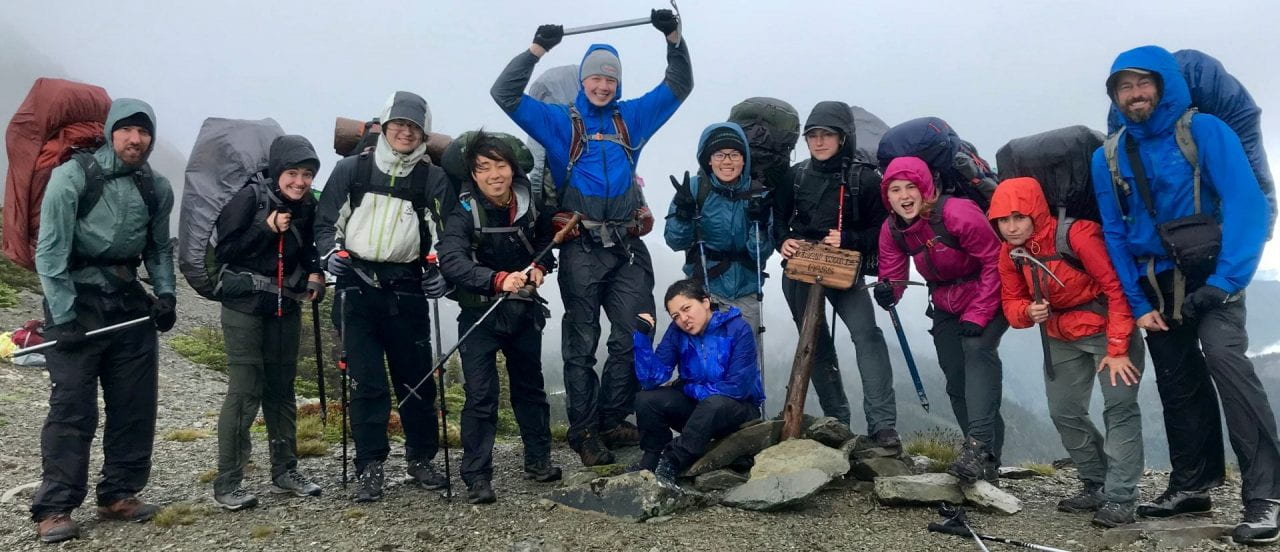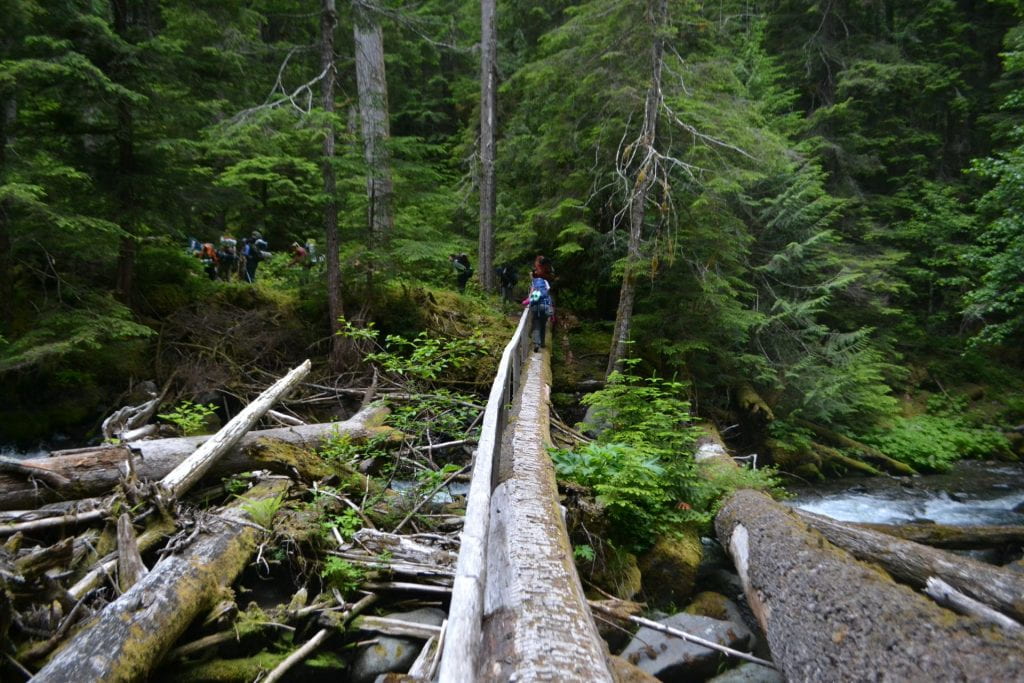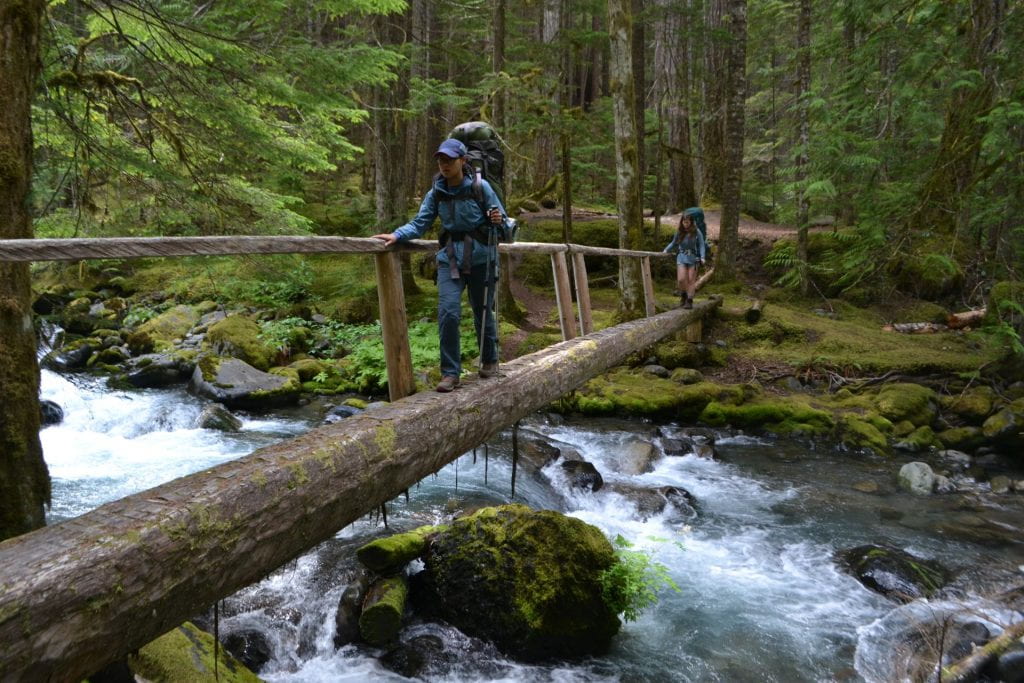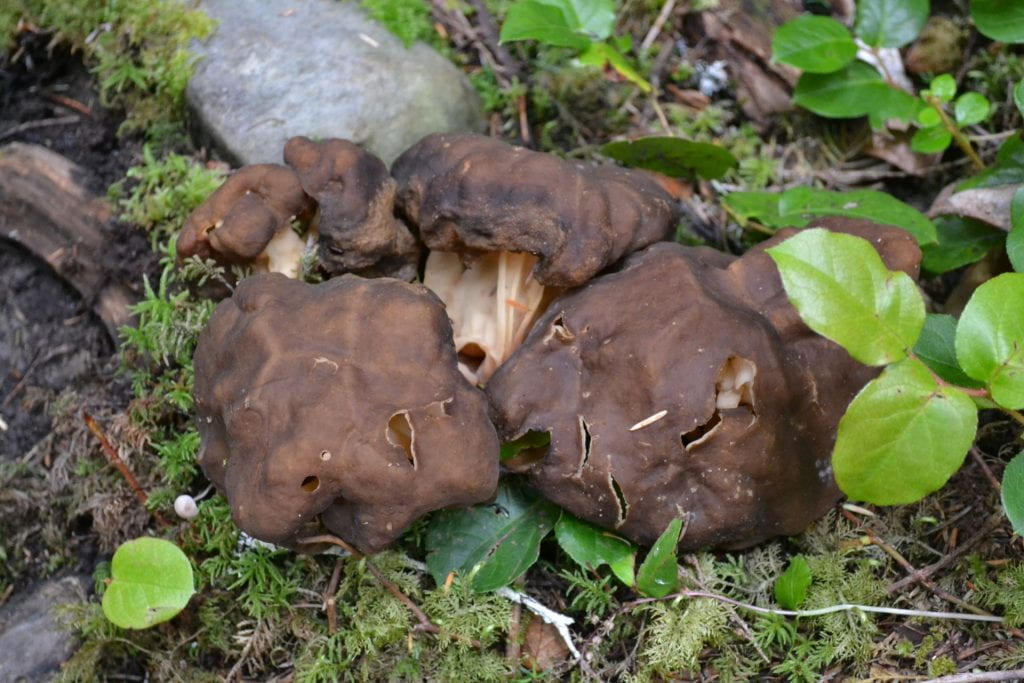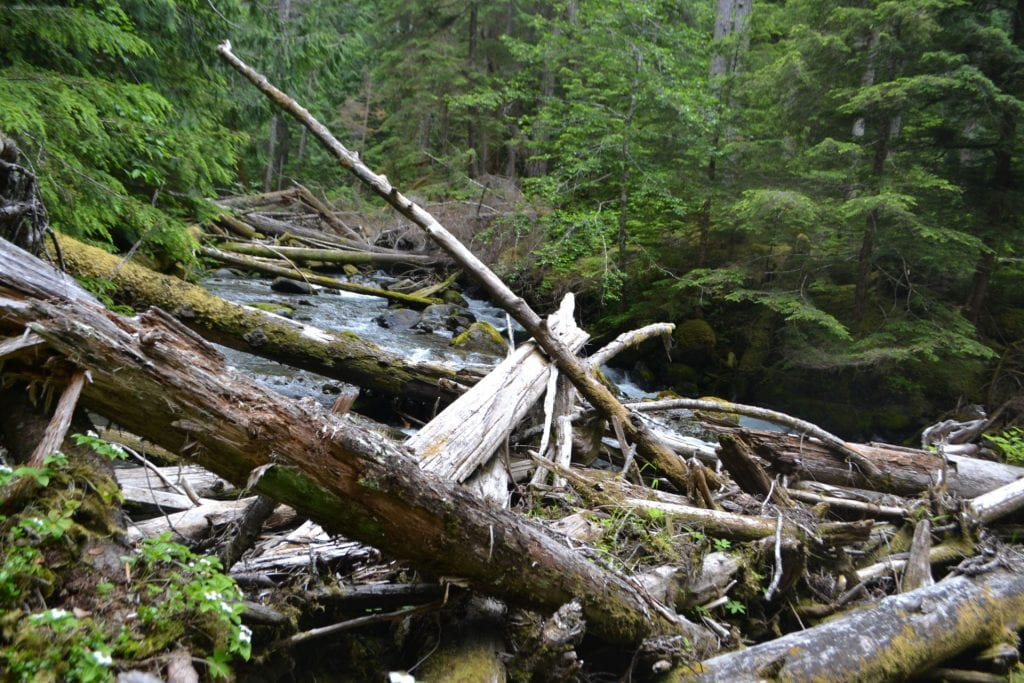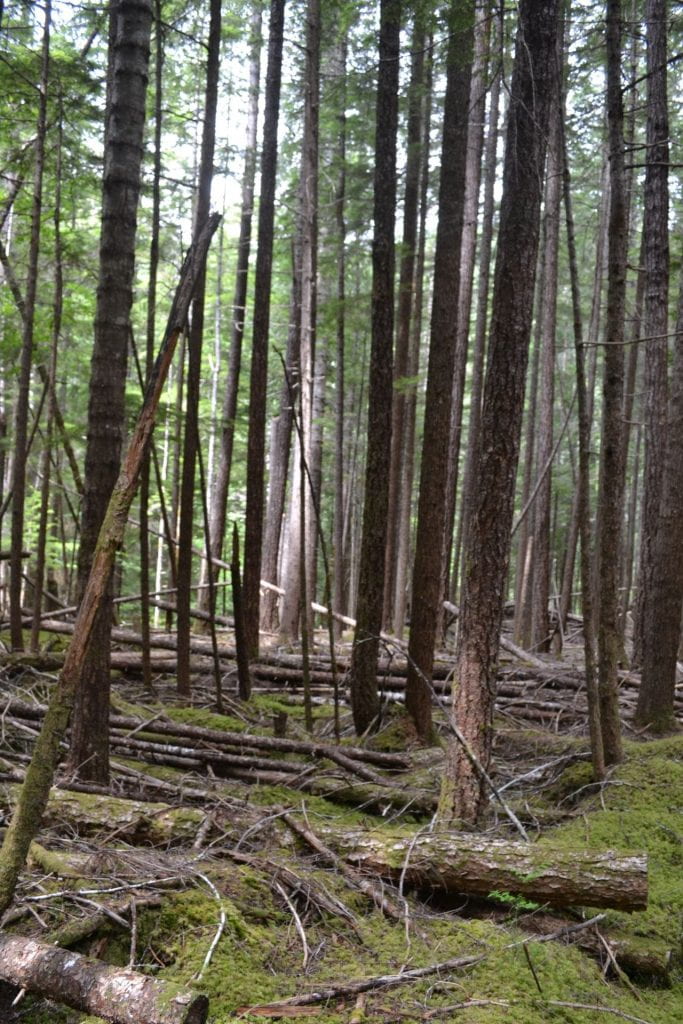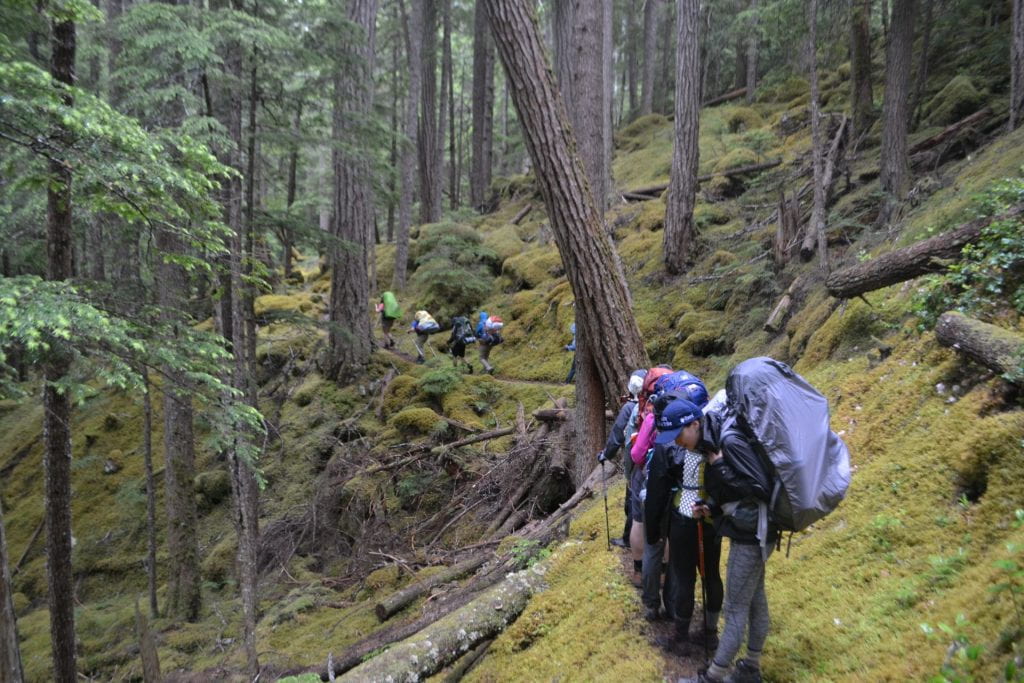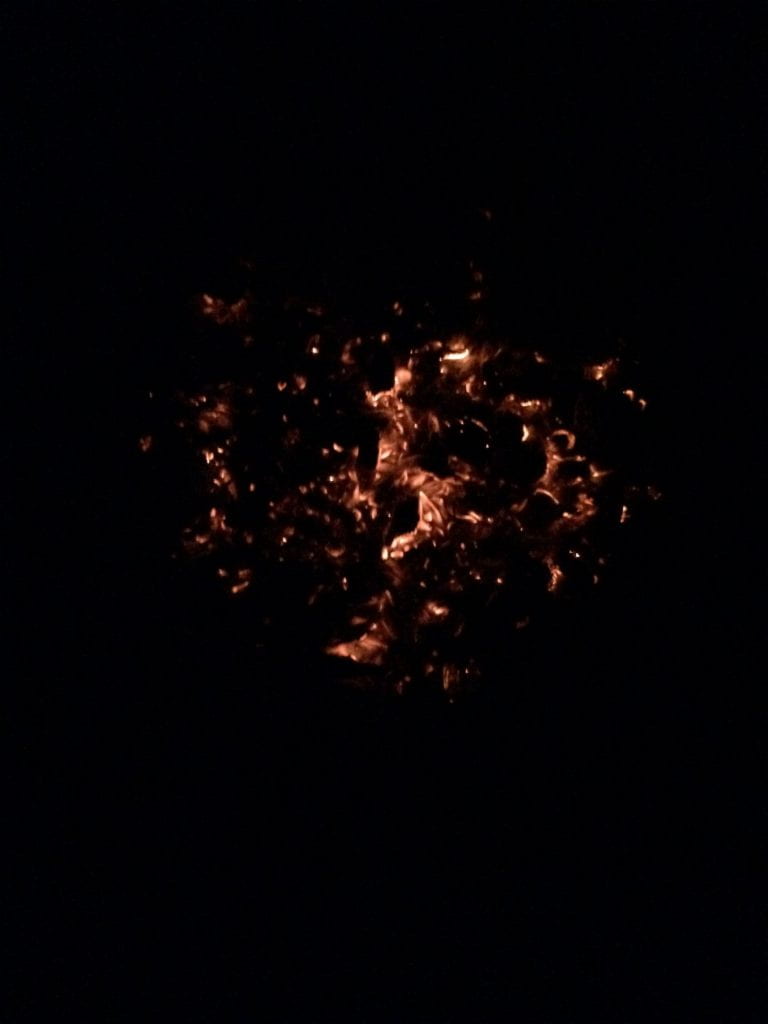On the second day, we had to say goodbye to our privy – who knows whether we would have that in the latter days. Putting up our gears, heavy just as before, it was hard to say if people were gaining or losing strength. The excitement, however, was never as encouraging as now. Nature was calling us, speaking of its mysteries and hymns.
The trail meandered along the Gray Wolf River, and we walked in the opposite direction of the current. We had to cross the river many times, often relying on chiseled paths on fallen snags across the stream. As we stroll along the trail, following the pace of Tim the Bird (sometimes panting a lot), I found myself unable to pay attention to things around other than the ground. Even after exchanging backpack with Jonathan, it was still a demanding load for me. Though, I appreciated the sudden stops “provided” by Zachariah, as he often found fungi along the hike and would stop to take photos. There was one particular stop that knocked me into attentiveness; Zachariah, the fantastic fungi spotter, spoke fervently without a pause: “Look, there are bones! What kind of bones are those? Let’s ask Tim…”
Then, Tim came by and confirmed that the bone seemed fresh and belonged to a deer. I could almost feel a cold shiver zap across my spinal cord, sensing danger and excitement. Indeed, a feast of the beasts probably happened not so long ago here, but what it implied was a lively ecosystem with life and death. The trees told us a similar story. Walking through the mossy lowland-forests, we see nurse logs and snags scattered between living trees. Those who fall would decompose into nutrients while providing desirable cover or conditions for other species, a telltale sign of nature working with nothing curated by humans.

A burned Douglas fir with a young forest regenerating around it. The Douglas fir survived the fire and is a legacy of the original forest. The younger forest is going through “stem exclusion.” Some trees are losing the competition for light and are beginning to die. The forest is thinning itself naturally as it enters the next stage of regeneration.
Things started to settle down after we arrived at Camp Ellis in the afternoon. The rain had already been spitting puffs on us now and then for a period. The sky was gloomy, the ground slippery, and everybody was ready for either the sun to be parading tomorrow or the ever-so-delighted existence of a campfire. A group of girls went for a dip in the stream, and soon we began our first discussion for the trip, led by Katie Spires and Nick Tritt. We were revisiting the current problem of Mountain Goats while sipping hot cocoa. The goats were non native species, brought here by some early settlers who were fond of those goats as sporting targets. Now, those goats were roaming on the mountains, seeking salt, and trampling the native plants. Some of those plants existed only in the Olympic Peninsula in the world. There were a few available resolutions. The one that was in operation was the “helicopter capture-transport” method, explaining the roaring sound of machines we heard earlier in the day. The wilderness does not seem to be so pristine and untrammeled by men, for an ideal space like that would not have helicopters going around picking up goats. We shared our opinions about what could be done to ease the removal process, and Autumn brought up tribal intervention as a rescue. This suggestion certainly widened my perspective, because as an international student, I was not so familiar with viewpoints coming from native tribes who once walked the land of America themselves.
Without a conclusive ending, we went on to start the campfire; it was such a blessing. At that time, I understood some feeling of the earliest European settlers, that the kindle of civilization and fire were curing for those dark, moody nights. I was so cold that I would not want to move away from it, even when the smoke from wood irritated my eyes, driving me to tears. Circling the campfire, Autumn also had her discussion about the relationship between the tribes and the Olympic National Park. It was an emotional moment. As the fire danced in the pit, we carefully held our ears up. A voice was speaking from a background with a past of living sustainably and harmoniously with nature. The stars glittered and stirred the night sky, and the fire slowly faded into the embers, dimming with warmth, we stuff ourselves into sleeping bags. Heart soften and mind open, our second day came to an end.
This nine-day journey is what I would call an introductory philosophical quest to answer the question of existence. The physical strain on the body and mental break-free was indeed provocative. We hesitate with fear when we face it; we roar with euphoria when we peak it; we cease to exist when we destroy it. It is nature, whether viewed as emotion, or knowledge, or divine, or science, it is something we must study to understand the world, and ourselves. As the rain pours, the snow falls, the sun shines, and the landscape unravels before us, solitude knocks on the door of your mind, asking for a conversation. Fire dreams in ember and ashes, providing heat and I question: what do we seek? Wind blows and thousands of acres of meadows unfold, capturing a fabled photo and I wonder: where does our goal lead? Questioning, and relieved, I genuinely believe that a concept of wilderness is a necessity, for all the questions it has raised, and all the wonders it has offered. Without pondering these questions, it is difficult to change the mindset to establish a sustainable future; any perceivable future becomes less predictable. Through this trip, I was able to meet Jonathan, and never before I found a deep-minded person who was into philosophy like him. Nature brings us together, sharing differences and similarities. Urban or rural, young or old, Europe or Asia, all of these do not matter. We are here to find the answers to our questions, and the answers to questions we have not yet learned to ask.
